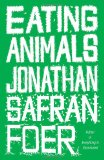Summary | Excerpt | Reviews | Beyond the book | Read-Alikes | Genres & Themes | Author Bio

How Overfishing Is Changing the World and What We Eat
by Charles Clover"Here is the world’s fishing industry laid bare, gutted and filleted for all to see: the greed, the folly, the waste and destruction. You will never look at a fish supper in the same way again." - The Economist.
Gourmands and health-conscious consumers alike have fallen for fish; last year per capita consumption in the United States hit an all-time high. Packed with nutrients and naturally low in fat, fish is the last animal we can still eat in good conscience. Or can we?
In this vivid, eye-opening book—first published in the UK to wide acclaim and now extensively revised for an American audience—environmental journalist Charles Clover argues that our passion for fish is unsustainable. Seventy-five percent of the world’s fish stocks are now fully exploited or over-fished; the most popular varieties risk extinction within the next few decades.
Clover trawls the globe for answers, from Tokyo’s sumptuous fish market to the heart of New England’s fishing industry. He joins hardy sailors on high-tech boats, interviews top chefs whose menu selections can influence the fate of entire species, and examines the ineffective organizations charged with regulating the world’s fisheries. Along the way he argues that governments as well as consumers can take steps to reverse this disturbing trend before it’s too late. The price of a mouthwatering fillet of Chilean sea bass may seem outrageous, but The End of the Line shows its real cost to the ecosystem is far greater.
Clover neither sensationalizes nor heckles, he simply lays out the facts, and is merciless at pointing the finger at the guilty parties - from the trawlers with vast nets that destroy everything in their paths, to incompetent and/or dishonest scientists; to celebrity chefs who proudly display the "marine equivalent of panda, rhino and great apes" on their menus; to sports fisherman (23% of endangered species caught in North American waters are caught by sports fisherman) and to the general public for whom eating fish has become "a kind of dietary talisman". However, it is the governments that take the greatest tongue lashing, and with good reason. From self-interested governments who deny there's a problem and hamper ocean conservation; to the governments who allow their fishermen to glibly ignore international rules; to European Union countries (such as Spain) who buy morally questionable fishing right from poor countries for pathetic amounts of money...continued
Full Review
 (1003 words)
(1003 words)
(Reviewed by BookBrowse Review Team).
Did you know:

If you liked The End of the Line, try these:

by Hannah Nordhaus
Published 2011
The honey bee is a willing conscript, a working wonder, an unseen and crucial link in America's agricultural industry. But never before has its survival been so unclear - and the future of our food supply so acutely challenged.

by Jonathan Safran Foer
Published 2010
Brilliantly synthesizing philosophy, literature, science, memoir and his own detective work, Eating Animals explores the many fictions we use to justify our eating habits - from folklore to pop culture to family traditions and national myth - and how such tales can lull us into a brutal forgetting.